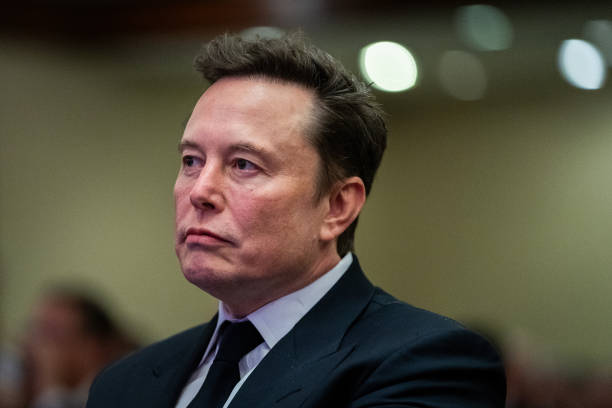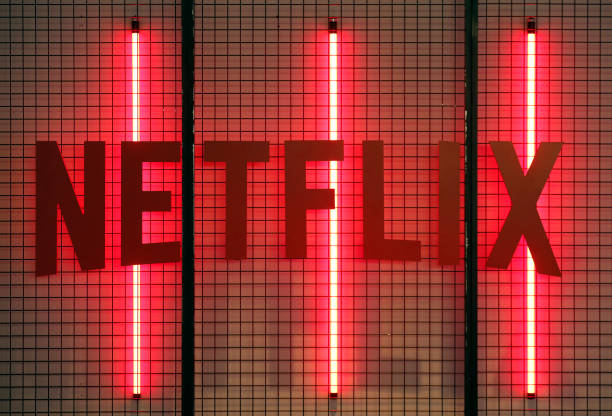
Billionaire entrepreneur Elon Musk has ignited a fresh storm in the global culture wars after announcing that he had cancelled his Netflix subscription and urged his 226 million followers on X (formerly Twitter) to do the same. Musk accused the streaming giant of “promoting woke content” and pushing what he described as inappropriate themes into children’s programming.
The boycott call, issued on September 30, 2025, came after Musk reposted allegations that Netflix had employed content creators who celebrated the death of U.S. conservative commentator Charlie Kirk while also embedding transgender storylines in children’s shows. His remarks immediately amplified online debate and triggered a wave of subscription cancellations under the trending hashtag #CancelNetflix.
Musk’s Accusation
Musk’s criticism specifically targeted the animated series Dead End: Paranormal Park, created by British writer Hamish Steele. The series, which was cancelled in 2023, centered on a transgender teenager navigating a supernatural world. While praised in progressive circles for its inclusivity, the show has been singled out by right-wing activists as an example of what they call “ideological indoctrination.”
The backlash intensified when resurfaced social media posts allegedly showed Steele mocking the assassination of conservative figure Charlie Kirk, referring to him in derogatory terms. Musk seized on this controversy, calling Netflix complicit in promoting harmful narratives.
“Just cancelled my Netflix subscription,” Musk wrote on X. “Cancel Netflix for the health of your kids.” He added that the platform was “taking it personal” in projecting what he described as “wrong narratives” against conservatives.
Market Impact and Industry Response
Following Musk’s boycott call, Netflix’s stock price slipped by around 2% in early trading. Analysts, however, urged caution in reading too much into the dip, noting the platform’s strong global subscriber base of more than 250 million accounts.
Nevertheless, Musk’s influence is hard to dismiss. His followers, many of whom view him as a cultural bellwether, quickly began sharing screenshots of cancelled subscriptions. This raises questions about whether the boycott could escalate into a sustained movement capable of pressuring streaming services to rethink their programming choices.
So far, Netflix has not issued an official statement on Musk’s accusations. The company has historically defended its diverse programming slate as part of its mission to serve global audiences with varied tastes, cultures, and perspectives.
Culture War Flashpoint
The dispute underscores the deepening divide between progressive and conservative voices over the direction of mainstream entertainment. For supporters of Musk’s stance, the boycott is a necessary pushback against what they describe as a “woke agenda” in Hollywood. For critics, however, the campaign amounts to censorship and an attempt to silence marginalized voices, particularly LGBTQ+ creators and stories.
Observers note that Musk has positioned himself as an outspoken critic of progressive movements, particularly those involving gender identity and diversity representation. By using his immense platform to pressure Netflix, he has once again placed himself at the center of a broader cultural battle that extends beyond business and into questions of free speech, morality, and family values.
Broader Implications for Streaming
The controversy could signal more turbulence ahead for global streaming platforms. Services like Netflix, Disney+, and Amazon Prime Video have increasingly embraced inclusive programming to attract diverse audiences. Yet these choices often draw backlash from conservative segments, creating a tug-of-war over content direction.
For investors, the key question is whether consumer boycotts amplified by influential figures like Musk can materially affect revenues. For policymakers and advocacy groups, the debate raises deeper concerns about who controls cultural narratives in an era where streaming content reaches billions worldwide.
What’s Next?
It remains to be seen whether Musk’s boycott call will lead to lasting damage for Netflix or fade as a viral controversy. Much will depend on how the platform responds and whether viewers choose to align with Musk’s stance or remain loyal to their streaming habits.
One certainty, however, is that the dispute highlights the growing intersection of technology, media, and culture wars. As one of the world’s most prominent billionaires, Musk’s words carry weight well beyond Silicon Valley—shaping public debate in boardrooms, living rooms, and political arenas alike.
For Netflix, the challenge lies in balancing its commitment to storytelling diversity with the risk of alienating powerful voices and segments of its audience. For audiences in Africa and across the globe, the controversy is a reminder of how deeply contested the future of entertainment has become.



